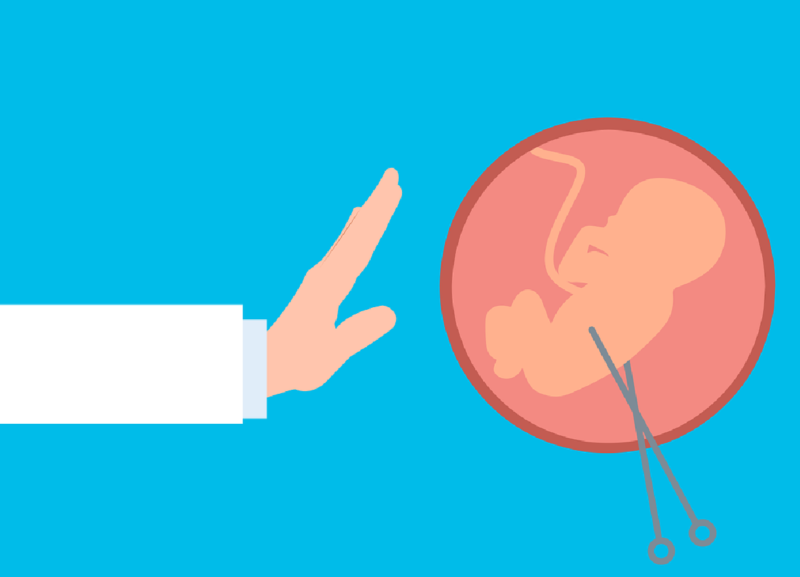Terminating an unplanned pregnancy is a significant decision. Not only does it come with a myriad of complex emotions, but it can also impact the long-term physical and psychological well-being of an individual. Therefore, if you or one of your loved ones are considering an abortion in Singapore, choosing the right clinic is pivotal. An abortion, when performed by a qualified and licensed gynaecologist, poses minimal risks to the health and well-being of a patient. Read on to learn more about how to find the right abortion clinic and what regulations govern surgical and medical abortions in Singapore.
Understanding Abortion in Singapore
A comprehensive legal framework regulates abortion in Singapore. This ensures that the procedure is carried out by registered practitioners under the purview of the Ministry of Health. Here is a brief overview of some of the key legal aspects and regulations governing abortion in Singapore:
Legal Framework
- Termination of Pregnancy Act
The primary legislation governing abortion in Singapore is the Termination of Pregnancy Act. This act legalises abortion under certain conditions and outlines the requirements for obtaining the procedure.
- Eligibility criteria
Women who are Singapore citizens, permanent residents, or who have lived in Singapore for at least four months are legally able to have abortions.
Regulations and Requirements
- Gestational period
A registered practitioner in Singapore can perform abortions up to 24 weeks into pregnancy. Beyond this period, abortions are only allowed if the mother’s life is at risk or if the foetus has severe abnormalities. Furthermore, an abortion can only be performed with the full consent of the pregnant woman.
- Mandatory counselling
In Singapore, an accredited counsellor must provide mandatory pre-abortion counselling to all women seeking a surgical or medical abortion, regardless of their marital status. Counselling ensures that the woman is fully informed about the procedure, its risks, and alternatives.
- Waiting period
There is a mandatory 48-hour waiting period after the counselling session before performing the abortion. This allows time for the patient to process her emotions and consider her decision thoroughly.
- Accredited clinics and qualified practitioners
In Singapore, the Ministry of Health permits qualified and licensed medical practitioners at government hospitals, private hospitals, or specialised clinics to perform abortions.
- Underaged patients (below 16 years)
All underage patients seeking an abortion at any registered clinic must first be referred to the Health Promotion Board Counselling Centre for pre-abortion counselling. Upon successful completion of the counselling session(s), the centre will issue a Certificate of Attendance (COA), which must be presented at the clinic before pregnancy termination can be considered. Generally, the consent of the parents or the legal guardian is required to carry out the procedure.

Finding a Trusted Clinic: Key Considerations
Professionalism and Expertise
Check whether the clinic you have chosen for your surgical or medical abortion in Singapore is MOH-accredited. All registered abortion clinics adhere to strict medical standards and ensure professionalism when dealing with patients. They are non-judgmental, respectful, and patient-centric; they provide comprehensive care at their facilities, including pre-and-post-abortion counselling. Furthermore, gynaecologists with years of expertise in reproductive health lead these clinics, ensuring the use of approved treatment methods and confidentiality in all abortion procedures. Therefore, when you visit a clinic, pay attention to the staff’s professionalism and request information on their expertise. If they lack clear communication or you feel unsupported or coerced, consider these red flags.
Comprehensive Services
Always look for a comprehensive service provider. A trusted abortion clinic will offer a wide range of comprehensive services to ensure that patients receive quality and standard care throughout the entire process. These services cover all aspects of the procedure, from the initial consultation to the post-abortion follow-up, addressing both medical and emotional needs.
Positive Testimonials and Reviews
Positive testimonials and reviews provide insight into patient experiences such as staff friendliness, facility cleanliness, and care received. For individuals seeking abortion services, testimonials can be a critical factor in their decision-making process. Furthermore, word-of-mouth referrals from family and friends, or recommendations from your family doctor, can help you find a reliable abortion clinic in Singapore. Online reviews could also provide additional information on reliable abortion clinics in Singapore, costs, and support services offered.
Privacy and Confidentiality
Always look for a MOH-registered abortion clinic that employs strict policies to safeguard patient information, including discreet entryways, confidential consultations, and secure record-keeping systems. This not only ensures privacy and confidentiality but also enables patients to access abortion care without the fear of judgement.
Transparency
Transparency is a cornerstone of ethical and effective healthcare, especially with sensitive services such as abortion. Clear communication, transparent pricing, and access to information on the qualifications and expertise of the staff, as well as their policies, are all critical elements in finding a trusted abortion clinic in Singapore.
Seng’s OG Practice for Surgical and Medical Abortions in Singapore
By prioritising factors such as legality, safety, confidentiality, and quality of care, individuals can find a trusted abortion clinic that meets their needs. Seng’s OG Practice always takes a patient-centric approach to abortion care. Our compassionate staff and well-equipped clinic enable us to cater to different patient needs. From the initial consultation and screening to post-abortion and contraception consultations, we provide a range of reproductive healthcare services to ensure you receive the care that you deserve. To book your consultation, please contact us at (65) 6472 7988 or fill up the contact form.











